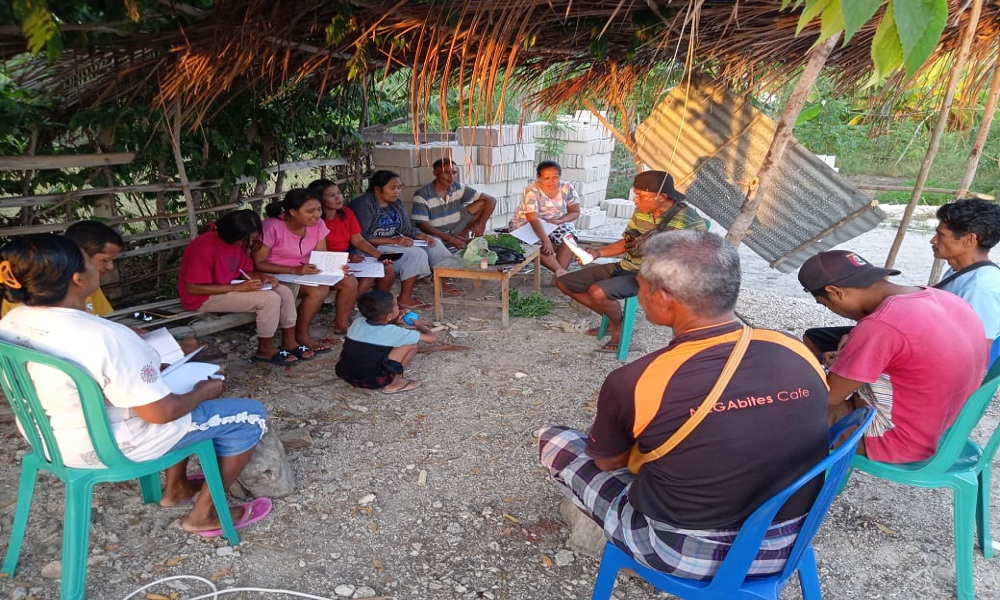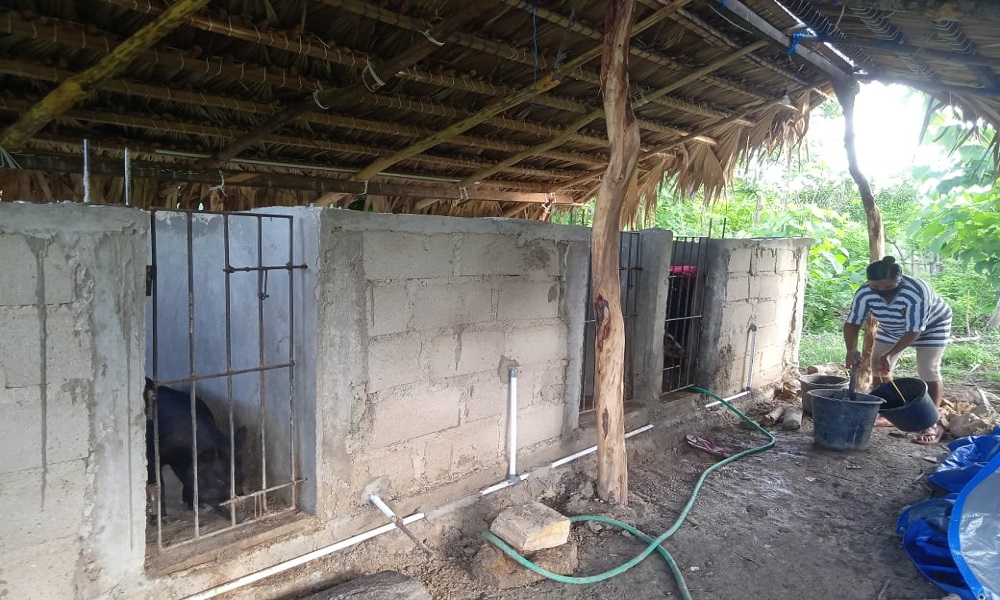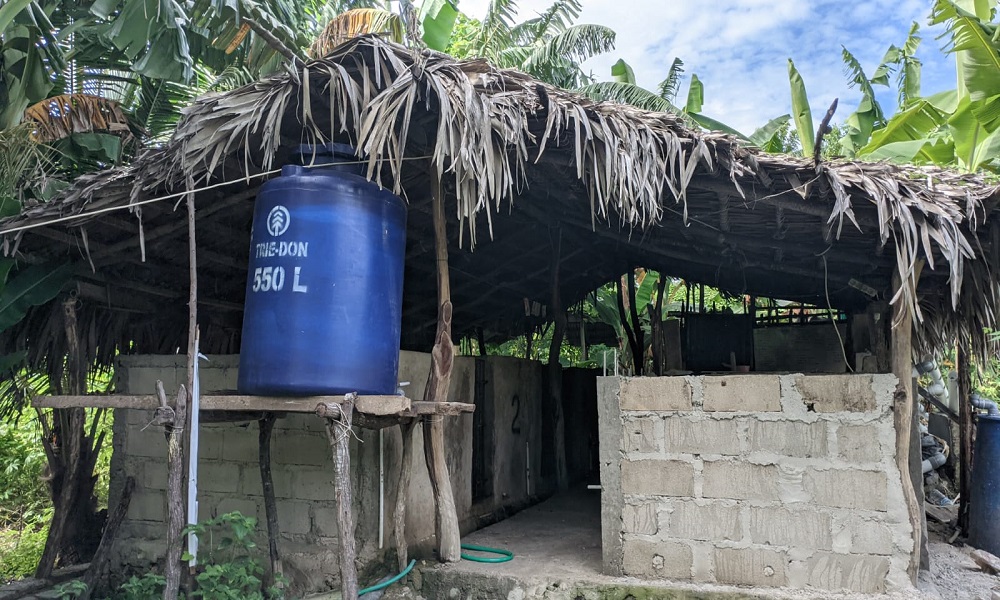
For approximately two years, members of the Dhei Ta Pe Kaddi OMB in Eimadake Village have been learning and applying pig husbandry methods developed with the SHEEP Indonesia Foundation (YSI) through field schools. The application of this method is carried out starting from the construction of cages, selection of puppies, occasional care to livestock enlargement.
Out of a total of 12 group members, five have started using/replicating the methods developed with YSI for pig rearing and management in their homes. The method covers a wide range of aspects, from design and management of pens to waste management. The pens are built with attention to proper building form and safe distance from houses, as well as efficient waste management. This aims to improve environmental quality and livestock health.

In addition, members learnt important techniques in selecting piglets. They practised how to check the quality of the pigs' health, such as ensuring that the pigs look lively, have a good appetite, as well as normal faeces and good growth. Feeding is also a major concern. Previously, pigs were fed only human leftovers, but now the feed is of higher quality and composition to ensure the necessary nutrients for healthy pig growth.
The most significant change seen is that members who own pigs now no longer release their pigs. They have started implementing biosecurity to maintain the health of their pigs and the cleanliness of their pens. The implementation of biosecurity has proven successful, especially when some time ago, pigs in the village managed to escape the ASF virus that has infected most pigs in Sabu Raijua.
Besides the technical aspects, there were also successes in terms of management and administration. Group members started to implement a bookkeeping system in their home barns. With this bookkeeping, they are able to streamline expenses in livestock management and get the right calculations when selling their pigs. In addition, the system has reduced the number of pigs roaming around the village streets, creating a cleaner and more organised environment.

Through the application of improved techniques in livestock rearing, environmental management, and financial management, group members have not only improved the quality and health of their pig herds but have also been able to improve their welfare.

